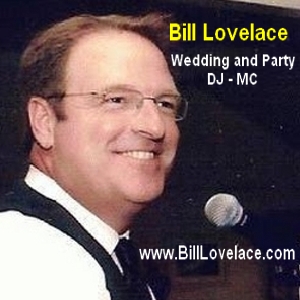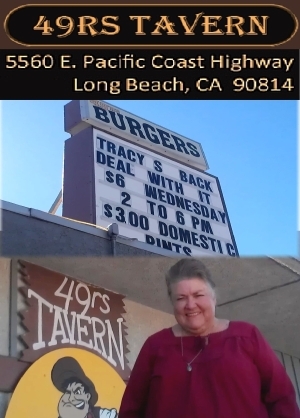...B. To reduce the influence of large contributors with a specific financial stake in matters before the City Council, thus countering the perception that decisions are influenced more by the size of contributions than the best interests of the people of the City....D. To limit overall expenditures in campaigns, thereby reducing the pressure on candidates to raise large campaign war chests for defensive purposes, beyond the amount necessary to communicate reasonably with voters.
G. To eliminate fundraising except during an election cycle.
H. To reduce the excessive fundraising advantage of incumbents and thus encourage competition for elective office.
I. To allow candidates and officeholders to spend a lesser proportion of their time on fundraising and a greater proportion of their time dealing with issues of importance to their constituents.
J. To improve the disclosure of contribution sources in reasonable and effective ways.
K. To help restore public trust in local governmental and electoral institutions.
Sponsor | Sponsor |
In June 1994, LB voters voted to approve the Campaign Reform Act. The public's vote didn't sit well with some Councilmembers and some in LB's establishment...and in 1995, the Council took voted action to enact an ordinance that allowed "officeholder accounts" to which Councilmembers, the Mayor and other citywide electeds could solicit and collect annual contributions from entities and individuals in an annual amount totaling up to $5,000. Officeholder accounts were something new. They weren't part of previous LB law and weren't part of LB's voter-enacted Campaign Reform Act.
The Council's action was opposed by a number of LBACI supporters. The late Jim Sturm called the officeholder accounts de facto "slush funds" that invite pay-to-play City Hall politics. Mr. Sturm and other LBACI members said "officeholder accounts" would let incumbents solicit and collect contibutions from individuals and entities with interests in friendly Council outcomes outside of regular election campaign cycles. In addition, incumbents could tap their "officeholder accounts" to curry favor with various groups and constituencies by handing out sums for their events and causes (giving incumbents a monied advantage over challengers since groups receiving funds from an incumbent Councilmember would likely remember it at election time.)
These political considerations were lost on budget-focused City Auditor Laura Doud, who recommended in 2007 that the Council increase the annual officeholder collectable sums from $5,000 to $10,000 for Councilmembers, and $5,000 to $25,000 for citywide electeds. Ms. Doud cited a "survey" she conducted of "comparable" California cities and argued that increasing allowable officeholder totals could reduce pressure to tap taxpayer sums for Council-office desired items. Her recommendations suited newly elected Mayor Bob Foster and Councilmembers gladly voted to enact them.
Sponsor |
Sponsor: Computer Repair Long Beach |
That's where things stood until Mayor Robert Garcia and five new Councilmembers took their current offices in mid-2014. Mayor Garcia chose his former Council office aide, now Councilmember Lena Gonzalez, to chair the Council's "Elections Oversight Committee." In the latter half of 2014, the Committee discussed changes to LB campaign laws, including changing officeholder account sums. On December 16, 2014 (during the pre-Christmas low-attention period), the Committee voted 3-0 to advance a recommendation to the Council that included tripling the amounts LB electeds could annually collect (raising them to $30,000 per year per Councilmember, $75,000 per year for citywide electeds.)
The proposed ordinance changes ultimately reached the Council for voted action on Jan. 20, 2015. Councilmembers Price, Austin and Mungo favored increasing officeholder account sums but not as high as the Committee recommended; Price, Austin and Mungo proposed $20,000 for Councilmembers, $50,000 for the Mayor; a motion to do this (Austin-Price) failed 3-5. That led to a vote on a motion to triple the "officeholder" collectable annual sums -- making them $30,000 per year for each Councilmember and $75,000 per year for citywide electeds. It carried 5-3 (Austin, Price, Mungo dissenting, 4th district vacant) The citywide elected most likely to benefit from tripling the amount was Mayor Garcia (as he was more likely to receive officeholder contributions than the City Prosecutor, City Attorney or City Auditor.)
Sponsor | Sponsor |
Following the 2016 election cycle, Mayor Garcia named Councilwoman Jeannine Price (a member of Garcia's 2014 "transition team") to chair the Elections Oversight Committee. In March 2017, with no prior public hearings and no accompanying explanatory written materials, Committee chair Pearce agendized an item that proposed in substance that the City Manager study the feasibility of letting the Mayor and Councilmembers give their tripled officeholder sums to candidates seeking LB, state and political offices, something not allowed under current LB law. Pearce fogged the substance of the item by listing it as a request that management study the feasibility of making LB law consistent with state law. On a
On April 4, the item as agendized was "Recommendation to request City Manager to study the feasibility of aligning councilmember and other elected officials officeholder accounts to those of state/FPPC regulations." The Council agenda attributed the item to Councilwoman Pearce as chair of the Elections Oversight Committee. A one page written statement accompanied the item, reciting that: "It is the recommendation of the Elections Oversight Committee to the City Council to request the City Manager to study the feasibility of aligning councilmember and other elected officials officeholder accounts to those of state/FPPC regulations."
After the clerk read the agendized title, the Mayor gave Councilwoman Pearce the floor. Pearce stated that the Committee had "looked at this," described present LB law, then stated: "We'd like to make a motion to have the City Attorney amend" the current LB law. In other words, Pearce moved to make the changes without any city manager "study" of the action's "feasibility" that she and her Committee had voted (2-1) as its recommendation to Council.
Councilman Supernaw initially missed the switch. He explained why he'd dissented on the Council committee vote and remarked, mistakenly, that the item "is just looking for a study, not that absolute decision." Mayor Garcia corrected him, noting that Pearce's motion wasn't to seek a "study" but was in fact to move for a change in the municipal code. City Attorney Charles Parkin confirmed this. In response, Councilman Supernaw thanked them for their clarification and said nothing further. Neither did any other Councilmembers.
The Pearce-Gonzalez motion carried on a
Sponsor |  |
A week later on April 11, the City Attorney-drafted text arrived (with no accompanying explanatory materials) for its first of two enacting votes. Mayor Garcia took the item out of order near start of the meeting. One public speaker, frequent Council communicator Larry Goodhue, said the measure "doesn't pass the smell test." The Council approved the item with no substantive discussion on a
On April 18, the Council is scheduled to take a second, finalizing vote on the issue. It will decide whether to enact, or vote down, or "receive and file" or take some other action, on a change to LB law that would let Council incumbents, the Mayor and other citywide electeds use sums from their tripled officeholder accounts to help elect candidates to various local, state and federal offices. LBREPORT.com will carry the Council proceedings LIVE on our front page on Tuesday April 18, starting at 5 p.m.
blog comments powered by Disqus
Recommend LBREPORT.com to your Facebook friends:
Follow LBReport.com with:
RSS |
Contact us: mail@LBReport.com





Hardwood Floor Specialists
Call (562) 422-2800 or (714) 836-7050
